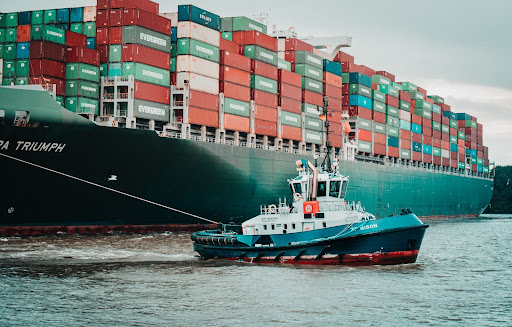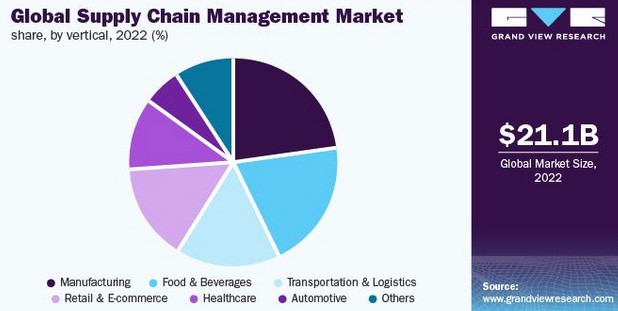Every retail or e-commerce business knows the importance of a supply chain. It’s a network of companies and vendors involved in converting raw materials into finished products and delivering them to end consumers.
Think of procuring materials from trusted suppliers, storing goods or items in the warehouse, and delivering products to customers’ doorsteps.
Enter compliance, one of the key drivers for business success. Complying with regulatory requirements for your supply chain is imperative to avoid legal ramifications and financial losses. Doing so also ensures customer satisfaction and business profitability.
This article identifies supply chain concerns and shares best practices with you. Read on for some tips for ensuring full legal and regulatory compliance.
How To Comply With Supply Chain Laws And Regulations
Legal and regulatory compliance revolves around many things, from health and safety laws to labor regulations to data protection and privacy rules. But as an e-commerce or retail business, you must stay on top of the supply chain.
Given its complexities, you must employ supply chain management (SCM). SCM entails managing the flow of goods and services, as well as the processes of transforming raw materials into final products.
According to Grand View Research, the global supply chain management market could grow from $21.1 billion in 2022 to $48.59 billion by 2030 at an 11.1% compound annual growth rate (CAGR).
When it comes to SCM, compliance is one key aspect you must prioritize. Supply chain compliance entails adhering to relevant laws and regulations as well as keeping up with industry standards throughout your supply chain operations.
That said, here’s how to comply with the legalities governing the supply chain:
Understand the Laws and Regulations
First, you must understand the laws and regulations related to the supply chain. The legalities often revolve around the following:
- Trade: Comply with trade laws, such as customs duties, trade control, and export regulations. Doing so is imperative, especially when handling imports and exports.
- Labor: Ensure you and your partnered vendors follow labor laws, such as fair wages, reasonable working hours, and safe working conditions.
- Environment: Consider waste management, emission control, and sustainable practices to reduce the supply chain impact on the planet.
- Health and Safety: Meet health and safety standards in your supply chain operations to foster well-being and avoid work hazards.
- Finance and Tax: Keep up with your financial obligations with the suppliers and other vendors. Also, stay on top of your tax obligations by filing taxes correctly and promptly.
- Data Privacy and Security: Safeguard the customer and vendor information in your supply chain operations. Secure your networks, systems, and databases to protect data.
- Contractual Agreements: It’s imperative to have contracts in place when working with partnered vendors for your supply chain operations.
Work with Trusted Suppliers
Your company deals with various vendors in the supply chain for your day-to-day business operations. You might be working with different suppliers, warehouse facilities, and shipping companies. What better way to strengthen your supply chain than to ditch the weakest links and work with reliable vendors?
Michael Power, CMO at DTF Transfers, suggests setting contracts in place. “Being highly critical and selective in hiring suppliers is one thing; creating service-level agreements with each vendor is another. The SLA contract should include your supply chain objectives, key metrics, and work scope, not to mention compliance requirements.“
Streamline Bookkeeping and Accounting
A business primarily exists to earn income. But while you make money from your customers, you lose some from your suppliers and vendors. So, strike a balance between your income and expenses in the supply chain. The ultimate goal is to earn more than you spend on your retail or e-commerce business to maintain a consistent cash flow.
But to ensure financial compliance, you must have proper bookkeeping and accounting. While the former involves recording all your financial transactions, the latter entails financial analysis and reporting. To maintain your cash flow, consider freight factoring for trucking companies, but ensure you always transact legally.
Ensure Proper Documentation
It’s best to put everything in writing in the business world, which also applies to SCM. There are best practices for document management to ensure 100% compliance. These practices include organizing files, regulating access, enhancing security, and protecting data.
But as mentioned, creating contracts is the first step to complying with laws and regulations. Also, develop a list of partnered vendors, whether raw material suppliers or factoring companies for trucking. Lastly, record all the transactions and activities in your supply chain operations for proper documentation and compliance audit.
Require Regular Monitoring and Reporting
Recording and documenting your supply chain operations aren’t enough. You must also require constant tracking and regular reporting. You must compile all compliance reports for record purposes and submit them to proper authorities for audits.
Jonathan Elster, CEO at EcomHalo, suggests establishing a quality assurance (QA) team. “QA specialists are responsible for monitoring your supply chain processes. They ensure you meet quality standards and ensure business compliance. By doing so, they can help your company avoid legal and financial implications.“
Perform Regular Compliance Audits
The importance of compliance audits is multifold. For one, they review your supply chain operations to see if you adhere to governing laws and regulations. They also help improve your processes to satisfy your end consumers. Ultimately, they ensure your company remains legally compliant at all times.
It’s best to schedule audits without informing the different units or departments several times annually. To perform a compliance audit, evaluate your supply chain processes, assess your employees’ work practices, and examine recorded documents. More importantly, take immediate action to correct wrong practices and streamline operations.
Conduct Risk Assessments
After your compliance audit, assessing the risks involved in your supply chain operations is crucial. Are you smuggling raw materials from another country? Does your warehouse have poor sanitation and working conditions? Are you compromising your supply chain network and customer data?
As such, risk assessment is a vital part of your compliance process. Suppose your payment portals to partnered vendors aren’t secured. That might risk your finances and negatively impact your cash flow. In that case, you must find ways to pay your suppliers and vendors securely, like enrolling in recurring payments through a reliable bank.
Staying On Top Of Supply Chain Compliance
Ensuring legal and regulatory compliance is imperative in business. Not only does it prevent legal implications and financial losses, but doing so also helps you satisfy your customers and boost your profits.
As such, address some key concerns in your supply chain and consider the best practices shared above. Establish a QA or compliance team to oversee your business operations, including SCM. This team must ensure 100% adherence to laws and regulations.
Ultimately, staying on top of your modern supply chain compliance can contribute to your business success!

